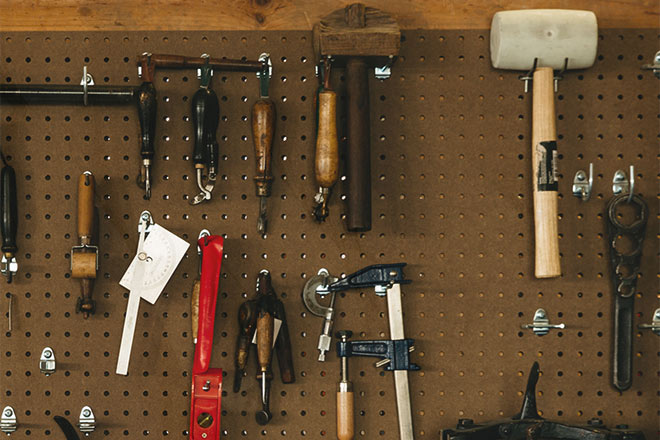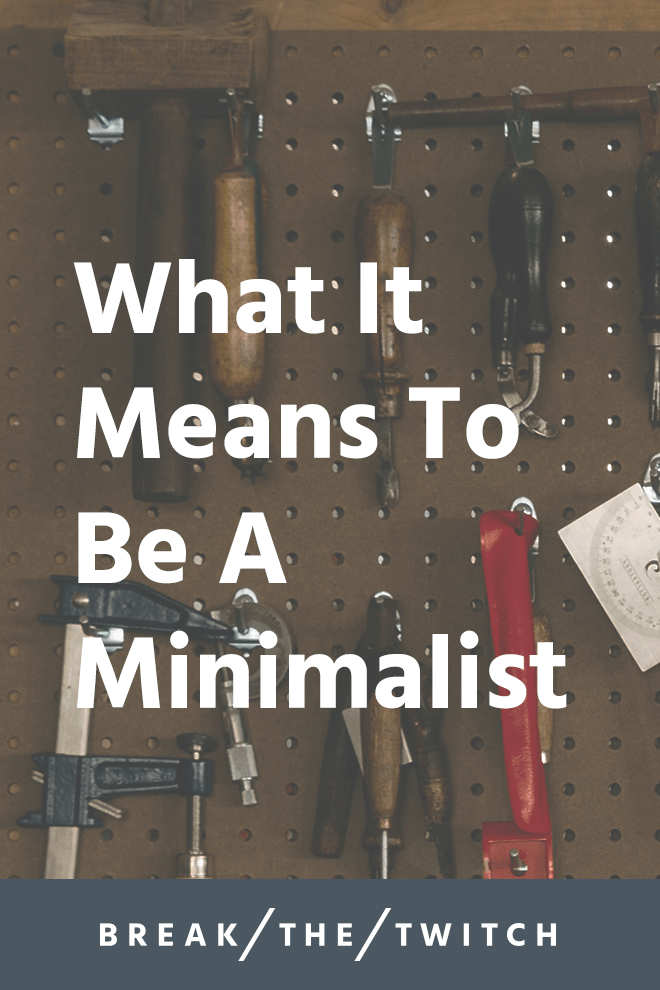
There has been quite a bit of discussion around minimalism, what it is, and what it is not. These discussions have inspired me to think more about my beliefs and reflect on what being a minimalist actually means to me.
There is no doubt that learning and implementing the principles of minimalism have changed my life for the better. Before 2014, I knew that the patterns I was beginning to identify weren’t working, but I wasn’t exactly sure why. Buying stuff made me happy, for a while. Heck. Buying stuff still makes me happy, but minimalism has helped change the kind of physical things I choose to spend money on.
From the beginning, Amy and I have subscribed to the idea of rational minimalism provided by Joshua Becker who writes the popular blog becoming minimalist.
Minimalism is the intentional promotion of the things we most value and the removal of everything that distracts us from it. —Joshua Becker
It is a relatively simple and straightforward approach to living a better life with less stuff, which is why we love it.
Despite that over the last two years Break the Twitch has grown to include building habits and creating opportunities, minimizing distractions is one of the three pillars that make up my own definition of intentional living. Without minimizing distractions and removing mental and physical clutter from our lives, it’s incredibly difficult to set up the other two pillars.
In other words, minimalism clears the ground, habits build the house, and the foundation built creates opportunities.
While some people choose to embrace a minimalist lifestyle that requires 100 items or less, I have established some basic beliefs that help focus my life in a meaningful way.
Here’s what I believe what it means to be a minimalist:
Detaching self-worth and personal identity from possessions
For the last several decades, we’ve been exposed to messages encouraging us to identify ourselves with brands and physical possessions. We’ve learned to make assumptions about a person based on the car they drive, the clothing they wear, and the things they own. Separating my sense of self-worth from the things that I own allows me to explore who I am without them. Instead of relying on a fancy watch to show off my perceived social status, I get to focus on finding ways to contribute, help others, and spread kindness. Now, it seems absurd to determine how “successful” a person is based on such trivial information. Through minimalism, we learn that these things mean very little about a person’s character, who they are, and their contributions to the world.
Focus on contribution instead of the impressiveness of consumption to see the true beauty in people.
Not worrying about the things we own, whether too much or too little
While it’s true that the less stuff we own, the less stuff owns us, there does come a point where the opposite is true. Through minimalism, we free ourselves from the things that no longer serve us and it should stop there. Stressing out about a house full of clutter or stressing about only owning 100 items or less, is still stress. Minimalism means letting go of stress related to possessions in both directions. This creates the freedom to focus people, relationships, contribution, and self-care.
Declutter as much as you think is necessary, then live your life. Feel free to adjust as you see fit.
Understanding what things actually do bring joy and more importantly, why
After two years of minimalism and decluttering, I know what things bring me joy more than ever before. When you carefully assess the things you own and make decisions to keep or discard the items, patterns emerge. I’ve come to understand minimalism is a tool that allows me to create things I love that bring me the most joy. In fact, 99% of the physical possessions I’ve purchased in the last two years are directly related to filmmaking and producing videos for the Break the Twitch YouTube channel. My desire to create increasingly better visual content has led me to realize just how happy it makes me.
Through the slow and steady process of decluttering, seek patterns that help you understand what truly brings you joy.
Having a framework to actively manage what matters and what doesn’t
It’s easy to believe there is a point when we become “official minimalists™” and suddenly have freedom, time, and energy for all the wonderful things life has to offer. This is undeniably false. I have significant evidence that minimalism is not a finish line you reach, but a framework with which you view the world. It’s a way to actively edit life in a way that allows us to give our best and live our best. Minimalism is truly a journey that lasts a lifetime as our needs and desires will change throughout.
Don’t expect to reach a point where everything clicks. There’s no finish line, just a framework.
Having more flexibility to manage what life brings, both good and bad
When schedules are overbooked and our homes are cluttered, the slightest unexpected disruption can cause a negative chain reaction. Imagine a $20 parking ticket that goes unpaid, racks up fines, and eventually causes your vehicle to be impounded. Having the time and financial capacity to pay the $20 fine prevents the chain reaction from happening. While minimalism will not solve all of life’s problems, it will create the space to better deal with them. Imagine an unexpected visit from a friend and not stressing out about how untidy the house is. Minimalism helps create this space to enjoy more of the good surprises and to deal with any unpleasant ones.
Minimalism won’t make all of our problems go away, but it sure does make them easier to deal with.
Whether you agree with these points or disagree, I encourage you to explore what minimalism means to you. I believe intentionally promoting the things we most value while removing the things that distract us is worthwhile for everyone.
If you’re interested in reading more, check out these these simple minimalism guidelines or this intentional decluttering guide.

